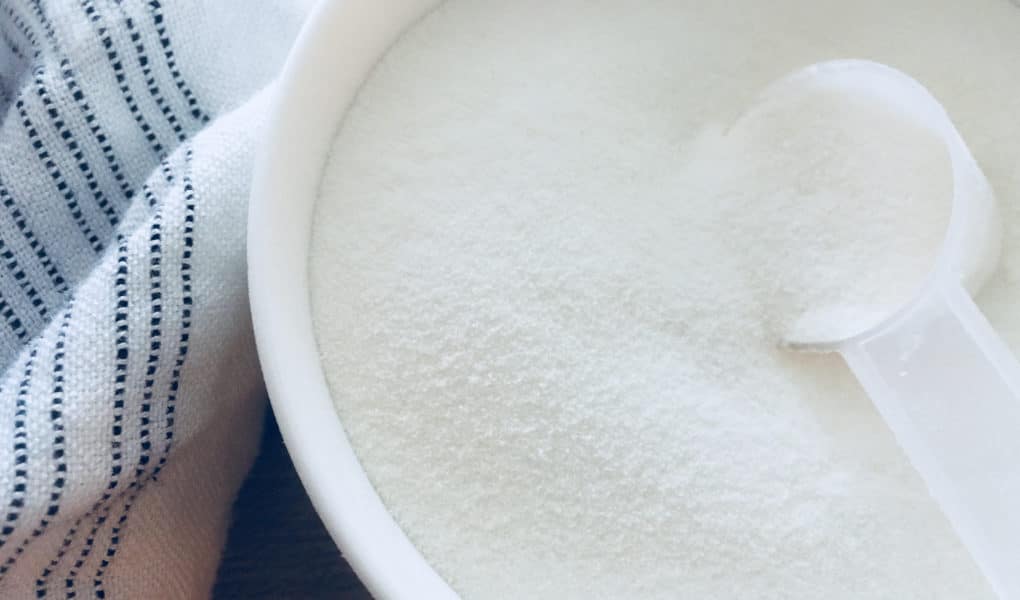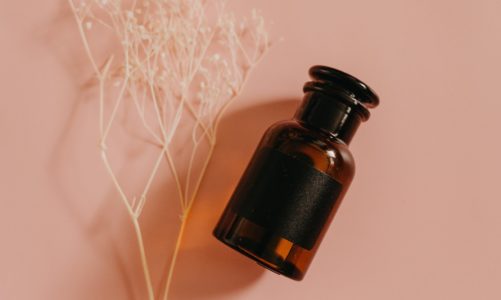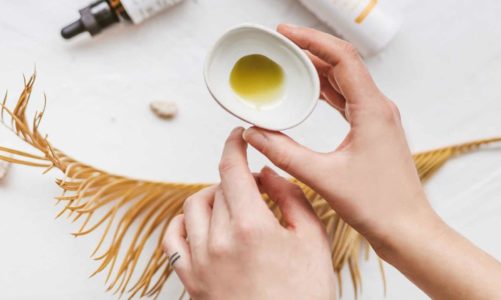Collagen is a protein that consists of long chains of amino acids that are abundant in the body. Think of it as the glue that provides strength and structure to the connective tissues in our bodies. It benefits the skin, muscles, ligaments, tendons, intestinal lining, blood vessels, bones, and eyes. In short, it keeps us looking and feeling good and more youthful. As we age, the production of collagen wanes. In our twenties, collagen is still produced optimally but then declines at a rate of 1.5 % a year. This is most notable when joints become stiff or when lines and wrinkles start to form on the face. Environmental pollution, smoking, UV radiation, aging, and other physical stressors deplete the collagen reserves and we end up with thinner and saggy skin, stiff joints, blood pressure problems, and other symptoms. Fortunately, knowing which collagen supplement type to take, may help address some of these issues.
Collagen is responsible for roughly 70 % of the weight of skin alone
Traditionally our diets were much higher in collagen. Cooking with animal bones and skin back then, provided us with gelatin, which is collagen in a larger molecular form. Today, our modern diets lack many of the amino acids our bodies need to build collagen effectively.
Choose a collagen supplement in ‘peptide’ or ‘hydrolyzed’ form (same thing). Collagen in this form is essentially shorter, broken-up pieces of the longer amino acid chains. Collagen in this form is highly soluble and much more absorbable in the body.
TYPES OF COLLAGEN
Various types of collagen can be found in the body. A total of 16 in fact. These include 1, 2, 3, 5, and 10. Type 1, 2, or 3 are the most prevalent in the body, and type 1 is the most dominant. Type ll, found mostly in cartilage is no less important as it is very beneficial for joints. Types of collagen come from marine (fish), chicken, and grass-fed (bovine) sources. Knowing which type of does what will help you choose which collagen supplement type to take.
Vegetarians or vegans may prefer pea protein as an excellent plant-based source of protein. Pea protein is also a good choice for people with food allergies to dairy and egg.

MARINE COLLAGEN (TYPE 1) is the most prevalent form of collagen found in the body. It is usually sourced from the fish scales, skin, or fins. It is also considered to be the best type of collagen for anti-aging, digestion, wound, and bone healing. Marine collagen is considered to have higher bioavailability compared to bovine collagen. High-quality marine collagen can be a little bit more pricey than other collagen types, but worth it. People who have fish allergies may want to stay away from this type of collagen.

GRASS-FED COLLAGEN (TYPE 1 & 3) also known as bovine collagen is a great protein source. This type of collagen is naturally found in the hides, bones, and cartilage of cows. It’s a great all-rounder that may relieve osteoarthritis, improve gut health, strengthen and repair muscles, improve sleep, and rejuvenate skin. Many studies show the anti-aging benefits of collagen hydrolysate. This one found that about 2.5 – 5 grams of collagen hydrolysate taken daily by women aged between 35 and 55 for an 8 week period, improves both skin moisture and elasticity significantly. Used as a topical treatment, it can help treat acne skin.

CHICKEN COLLAGEN (TYPE 2) is mainly found in the cartilage and bones of the chicken. Often used in medicine, this type of collagen helps to fight pain and inflammation. Chicken collagen has some amazing benefits such as relieving joint pain and arthritis, improving gut health, and supports the skin. Taking chicken collagen as a bone broth is super healthy and a great immunity booster.
Quick & easy: which collagen supplement to take
Your preference and motivation for taking collagen will determine which collagen supplement type you choose.
| Concern | Collagen Type |
| Skin | Marine (Type 1) |
| Joints | Marine, Bovine, Chicken (Type 1, 2, 3) |
| Gut | Marine, Bovine, Chicken (Type 1, 2, 3) |
| Sleep | Bovine (Type 1 & 3) |
| Immunity | Chicken (Type 2) |
| Muscles | Bovine (Type 1 & 3) |
Last thoughts on which collagen supplement type you should take.
Your body is super smart. It will know what to do with the collagen you ingest once it is broken down into the various amino acids again. Deciding which collagen supplement type to take, will ultimately depend on your personal preference and the reason for taking collagen. If the anti-aging benefits of collagen appeal to you, then marine collagen is your best best. For general all-around health support, grass-fed collagen is the way to go. If you’re aiming for a full spectrum of benefits, then go for a blend of different types of collagen.
Before starting on any collagen supplement, make sure to consult a health practitioner if you are pregnant or on any medication. A deficiency in vitamin C can cause an imbalance of collagen in your body.
This article was not written or overseen by a medical professional and should not be viewed as advice or diagnostic information.
Others enjoyed these articles too:
Does vitamin C help restore collagen?
Which essential oil contains vitamin C?
When is the best time to take vitamin C and collagen?
How much vitamin C is needed for collagen production?
Where can I get natural vitamin C from?
These secret 6 essential oils help treat hyperpigmentation.
Word of caution & Disclaimer: These statements have not been evaluated by the Food and Drug Administration. The products recommended are not intended to diagnose, treat, cure, or prevent any disease. It is also not the intention to imply that vitamins or dietary supplements are substitutes for a balanced diet or are in any way more beneficial or superior to dietary nutrients. It is also not intended to imply that normal health may be affected by not taking vitamin or mineral supplements or receiving intravenous vitamin C infusions.
Icons: Freepik via Flaticon



